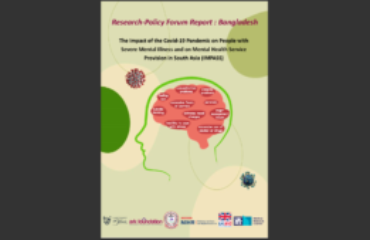Abstract
Introduction The burden of multimorbidity is recognised increasingly in low- and middle-income countries (LMICs), creating a strong emphasis on the need for effective evidence-based interventions. Core outcome sets (COS) appropriate for the study of multimorbidity in LMICs do not presently exist. These are required to standardise reporting and contribute to a consistent and cohesive evidence-base to inform policy and practice. We describe the development of two COS for intervention trials aimed at preventing and treating multimorbidity in adults in LMICs.
Methods To generate a comprehensive list of relevant prevention and treatment outcomes, we conducted a systematic review and qualitative interviews with people with multimorbidity and their caregivers living in LMICs. We then used a modified two-round Delphi process to identify outcomes most important to four stakeholder groups (people with multimorbidity/caregivers, multimorbidity researchers, healthcare professionals and policymakers) with representation from 33 countries. Consensus meetings were used to reach agreement on the two final COS. Registration: https://www.comet-initiative.org/Studies/Details/1580.
Results The systematic review and qualitative interviews identified 24 outcomes for prevention and 49 for treatment of multimorbidity. An additional 12 prevention and 6 treatment outcomes were added from Delphi round 1. Delphi round 2 surveys were completed by 95 of 132 round 1 participants (72.0%) for prevention and 95 of 133 (71.4%) participants for treatment outcomes. Consensus meetings agreed four outcomes for the prevention COS: (1) adverse events, (2) development of new comorbidity, (3) health risk behaviour and (4) quality of life; and four for the treatment COS: (1) adherence to treatment, (2) adverse events, (3) out-of-pocket expenditure and (4) quality of life.
Conclusion Following established guidelines, we developed two COS for trials of interventions for multimorbidity prevention and treatment, specific to adults in LMIC contexts. We recommend their inclusion in future trials to meaningfully advance the field of multimorbidity research in LMICs.
Read the full article here: https://gh.bmj.com/content/9/8/e015120


